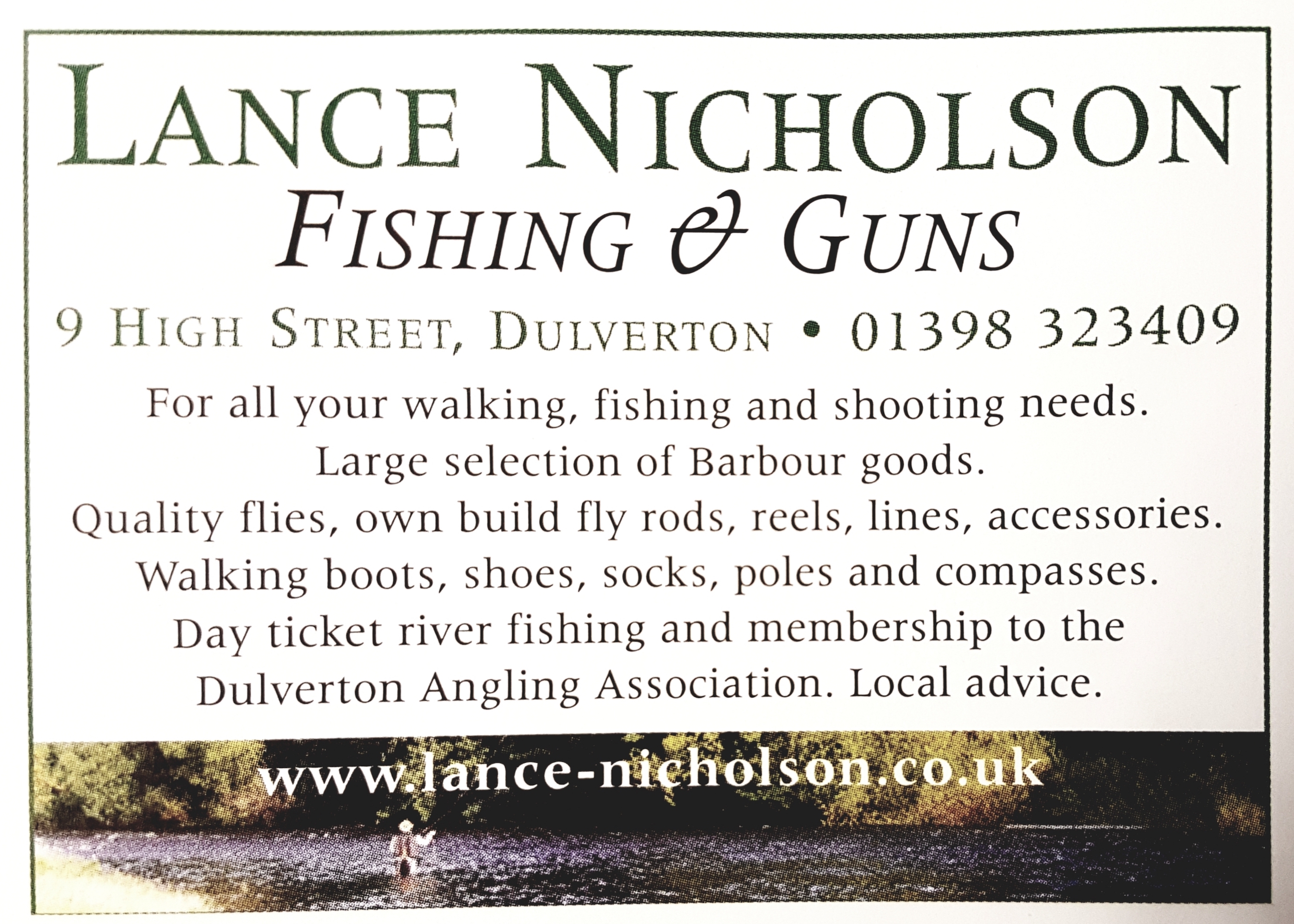The River Taw Fisheries and Conservation Association held their annual general meeting at the Mole Resort (formerly High Bullen House Hotel) on Friday March 22nd.
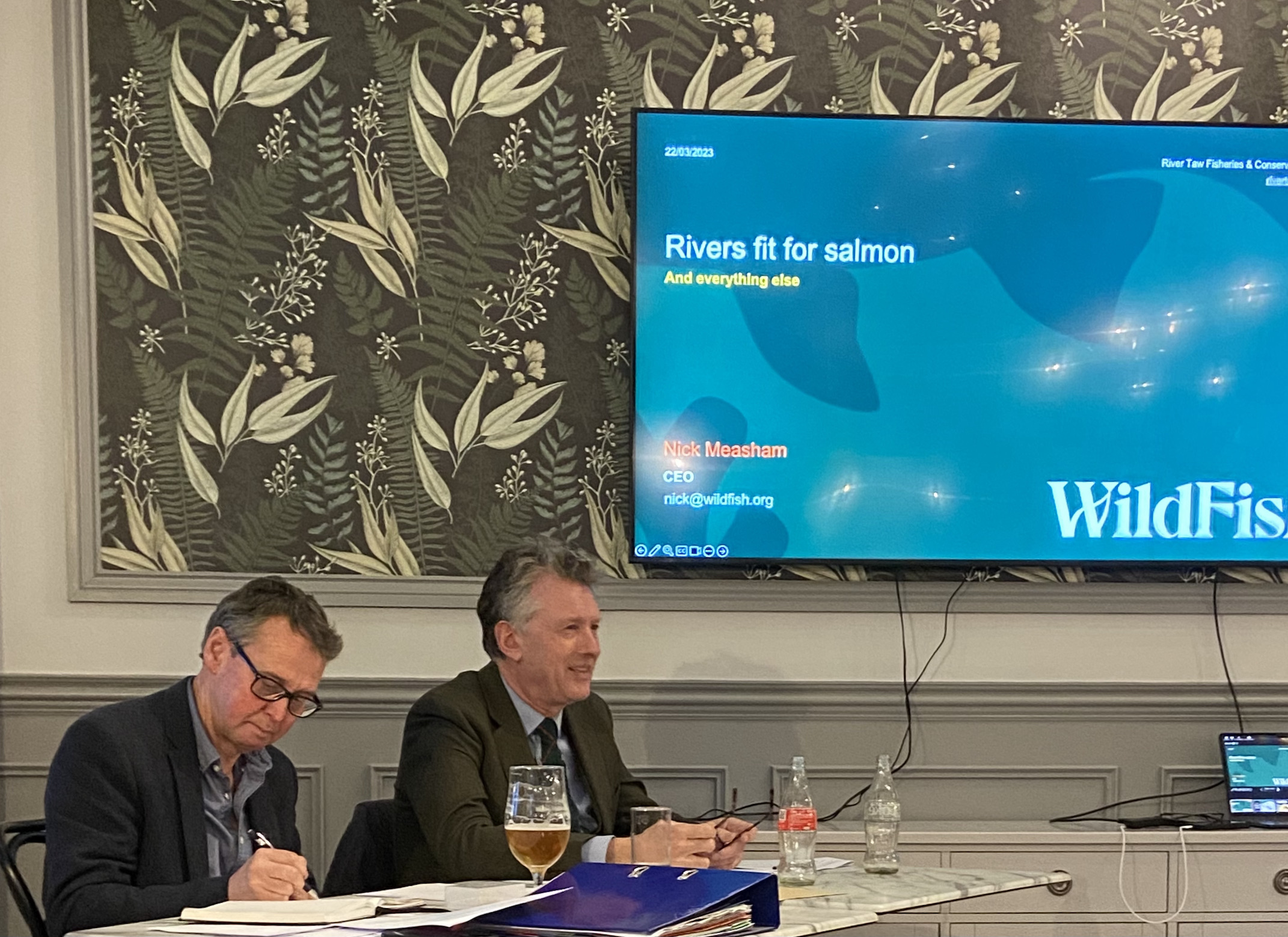
Members from across the region reflected upon a disappointing season in 2023 with catch returns indicating very poor results for both salmon and sea trout. Sixty salmon and around one hundred sea trout were caught throughout the river season. River flow had been low during the early spring and summer but had been good for the second half of the season. A good number of kelt’s caught at the start of the season gave some cause for optimism for future seasons. Redd counting during the winter had been difficult due to high flows.
Chairman Andy Gray delivered an outline plan for working closely with the North Devon Catchment Partnership to focus on improving water quality and habitat. This ambitious project aims to unite all who have an interest in the River Taw and its tributaries. Farmer clusters are now receiving payments to invest in environmentally beneficial projects and practices that will benefit the rivers. The Environment Agency are also focussing on agricultural issues with increased officers to both police and enforce regulations.
Measures to reduce flooding and slow the flow are being introduced on tributaries of the Taw investment in leaky dams and buffer zones.
The recent North Devon District Council meeting was discussed with a recognition that there is greater public awareness regarding sewage discharge incidents by South West Water.
An increasing run of shad into the river Taw each summer is a positive sign that the weir removal project partially funded by the RTFCA has benefitted the river.
Pete Tyjas introduced guest speaker Nick Measham CEO Wildfish. Nick delivered a passionate and enlightening talk and presentation about its work to protect wild fish. Nick highlighted the dramatic decline in salmon stocks estimated at close to 90% between 1970 and 2016. Nick highlighted the three essentials for salmon in our rivers. Clean water, enough water and no barriers. Pollution, over abstraction and barriers to migration are the key issues. Wildfish are working extremely hard to tackle all these issues with data monitoring via their smart rivers project, working to ensure compliance with existing regulations and campaigning to get farmed salmon off the table.
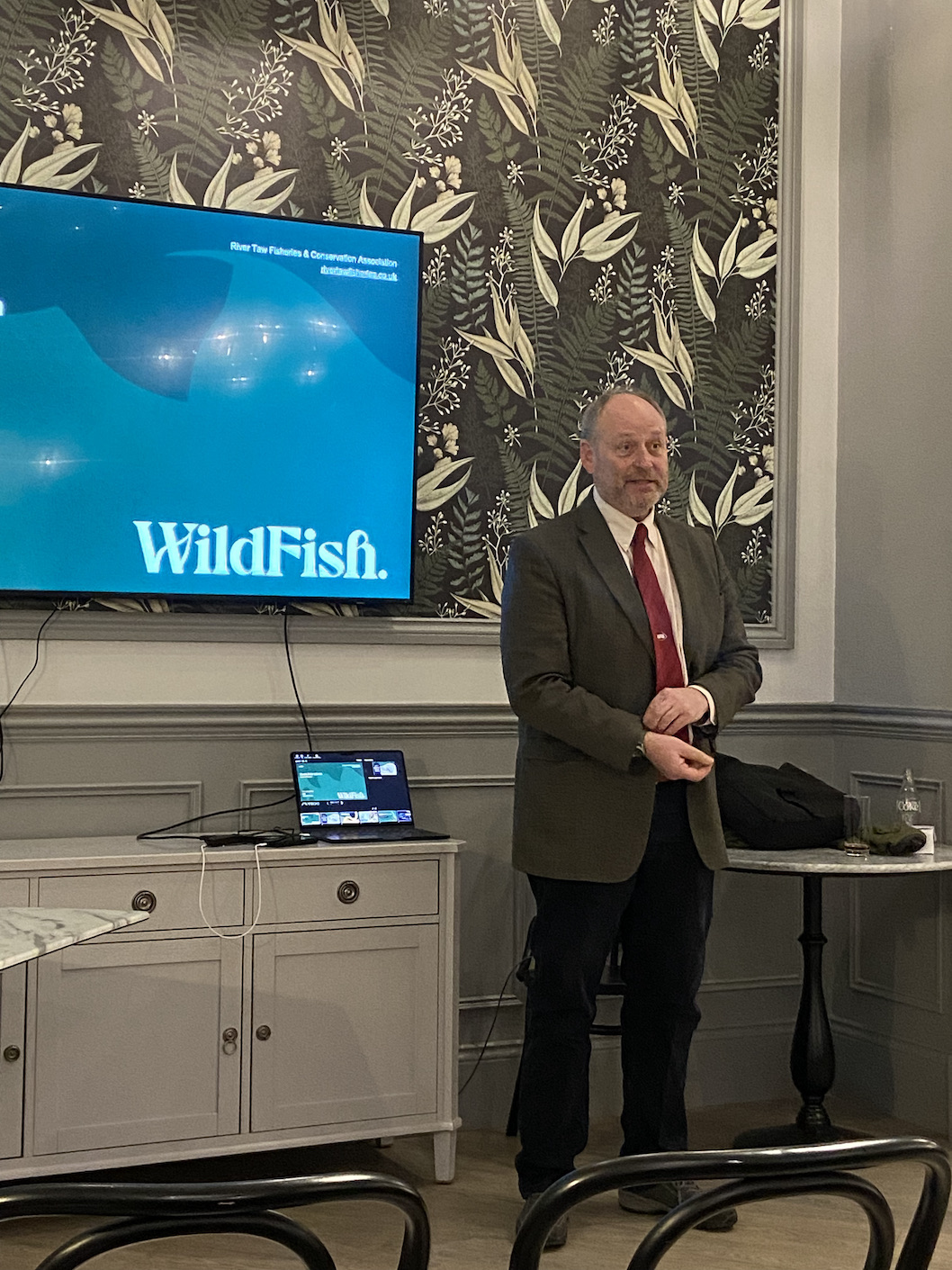
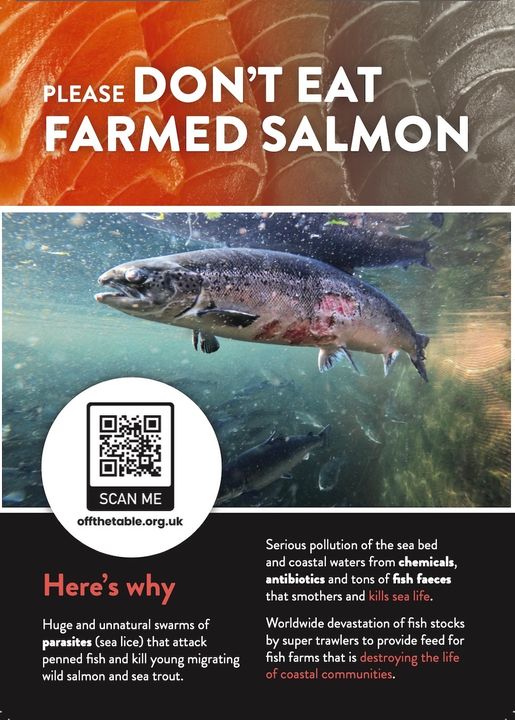
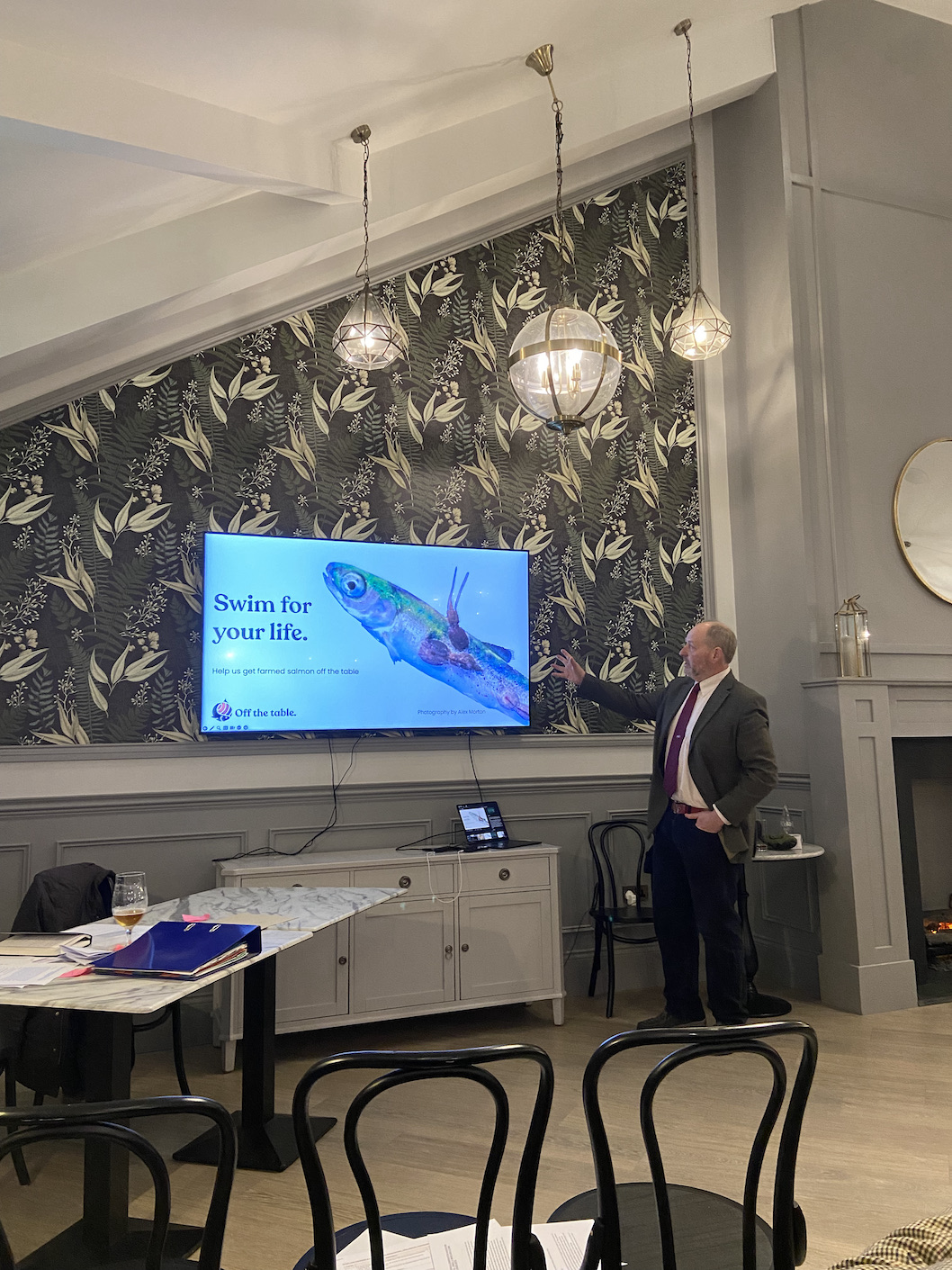
The talk was followed by the associations annual auction to raise valuable funds for river improvements. Discussion around the dinner tables after the meeting undoubtedly included debate on the preceding presentation and the prospects for the coming season.


